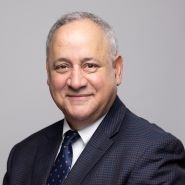Second Circuit Affirms Holding that Universal Church is Generic
- November 5, 2018
- Article
Associated People
Associated Practices
In a summary order, the Second Circuit affirmed the district court’s summary judgment holding that the registered marks UNIVERSAL CHURCH and THE UNIVERSAL CHURCH are generic for evangelistic and ministerial services and for religious counseling and ministerial services. The Universal Church, Inc. v. Toelner, 17-2960-cv (2d Cir. Nov. 2, 2018).
The Universal Church had sued Universal Life Church and various related personnel for trademark infringement, unfair competition, anticybersquatting and related claims based on Universal Life Church’s use of UNIVERSAL LIFE CHURCH. The district court granted summary judgment to Universal Life Church on the grounds that UNIVERSAL CHURCH and THE UNIVERSAL CHURCH are generic terms.
The Second Circuit affirmed ruling that Universal Life Church met its burden of showing that the term UNIVERSAL CHURCH is generic in the context of “evangelistic and ministerial services, namely, conducting religious workshop classes” and that THE UNIVERSAL CHURCH is generic in the context of religious counseling and ministerial services.
To prove the terms were generic, Universal Life Church introduced an expert report and testimony that “the longstanding common use of the phrase ‘Universal Church’ in various contexts demonstrates without question that the phrase has been in generic usage over two millennia to describe the Church as a whole throughout the world.” It also introduced the definition from the Oxford English Dictionary of “universal” as “Designating the whole Christian Church or all Christians collectively . . . Freq. in universal church.” (emphasis in original).
Universal Church failed to create a disputed factual issue that “Universal Church” does not generically refer to religious counseling and evangelistic and ministerial services. Notwithstanding Universal Church’s widespread use of and efforts to police the use of UNIVERSAL CHURCH, it could not deprive others of the right to use that generic term. The Second Circuit reasoned that efforts to police the use of the term are not relevant to whether the term is generic.
Because the term properly was held generic, the Second Circuit also affirmed the district court’s summary judgment ruling cancelling the registered trademarks, and grant of summary judgment to Universal Life Church on the anticybersquatting claims.
The Second Circuit also affirmed dismissal of The Universal Church’s unfair competition claim which rested on the theory that even a generic term may give rise to an unfair competition claim if the junior user adopts the term in order to conflate itself with the senior user. That claim lacked factual support because the record did not suggest that Universal Life Church, which provides free ordination and does not conduct church services other than occasional mass weddings, attempted to portray itself as a Pentecostal church in order to confuse the public into mistakenly purchasing its services in the belief that they were services of The Universal Church.
Recent Publications
Latest Case Decisions Affecting Patent Licenses in U.S., Europe and Japan
Les Nouvelles - Licensing Executives Society International (LESI)










 Counseling & Strategic Advice
Counseling & Strategic Advice IP Transactions
IP Transactions Litigation
Litigation PTAB Proceedings
PTAB Proceedings Start-Up
Start-Up Technology Transfer
Technology Transfer Trademark & Designs
Trademark & Designs U.S. Patent Procurement (Application Drafting & Prosecution)
U.S. Patent Procurement (Application Drafting & Prosecution)








